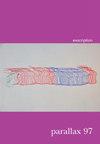灰烬:德里罗的离开
IF 0.1
4区 社会学
Q4 CULTURAL STUDIES
引用次数: 0
摘要
写第一句话是不可能的。任何其他句子,甚至最后一句,都有可借鉴之处;他们来自某个地方,正在继续一些事情。前面的东西已经规定了他们的方向。即使他们与之前的情况决裂,就像解决方案一样,之前的情况从根本上决定了转移的可能性。在一个句子存在之前,还有另一个句子。但第一句话也是这样吗?它们究竟从哪里来?是什么为它们的发生做准备?他们必须使用什么?在接下来的内容中,我建议质疑第一句话的可能性,一方面是文学或一般语言与现象现实之间的构成裂痕。我的建议是,第一句话必须以复杂的方式处理这种裂痕,也就是说,它们需要通过某种方式将文学世界的可能性从参照现实中剥离出来,来确保语言环境的完整性。第一句插入了现实,从而在单词和经验对象和事件之间划出了界限。我将通过引用问题的一系列理论来阐述这个问题,并将围绕唐·德利洛2007年的小说《坠落的人》的讨论安排这些审问,特别是其中的第一句话:“它不再是一条街道,而是一个世界,一个落灰和近夜的时空”。本文章由计算机程序翻译,如有差异,请以英文原文为准。
Ashes: DeLillo’s Departure from the Referent
There is something impossible about writing a first sentence. Any other sentence, even last sentences, have something to build on; they come from somewhere, are continuing something. Whatever precedes them already stipulates their direction. Even if they break off from what comes before, as the anacoluthon would, what’s previously there fundamentally conditions the diversion’s very possibility. Prior to the existence of a sentence there exists another sentence. But is this also true for first sentences? Where exactly do they come from? What prepares their occurrence? What do they have to work with? In what follows, I propose to interrogate the possibility of the first sentence with regard to the constitutive rift between literature, or language in general, on the one hand, and phenomenal reality on the other. My suggestion would be that first sentences have to negotiate this rift in complex ways, which is to say, they need to secure the integrity of their linguistic environment by somehow tearing away the possibility of a literary world from referential reality. First sentences interpolate reality and thus draw a boundary between words and experiential objects and events. I will be expounding this issue by drawing on a series of theoretical takes on the problem of reference and will be arranging these interrogations around a discussion of Don DeLillo’s 2007 novel Falling Man, specifically its first sentence: ‘It was not a street anymore but a world, a time and space of falling ash and near night’.
求助全文
通过发布文献求助,成功后即可免费获取论文全文。
去求助
来源期刊

Parallax
Multiple-
CiteScore
0.50
自引率
0.00%
发文量
0
期刊介绍:
Founded in 1995, parallax has established an international reputation for bringing together outstanding new work in cultural studies, critical theory and philosophy. parallax publishes themed issues that aim to provoke exploratory, interdisciplinary thinking and response. Each issue of parallax provides a forum for a wide spectrum of perspectives on a topical question or concern. parallax will be of interest to those working in cultural studies, critical theory, cultural history, philosophy, gender studies, queer theory, post-colonial theory, English and comparative literature, aesthetics, art history and visual cultures.
 求助内容:
求助内容: 应助结果提醒方式:
应助结果提醒方式:


